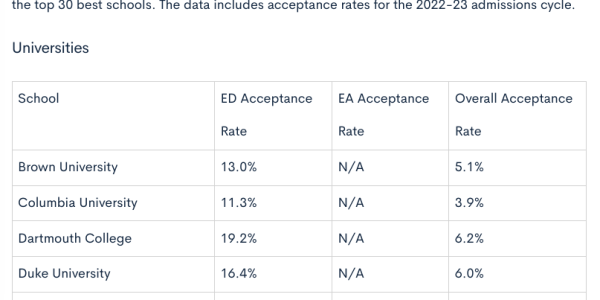Throughout your high school career, you’ve most likely worked towards one goal: college. You’ve been taught that having top-tier grades, soaring standardized test scores, unique extracurriculars, glowing teacher recommendations, and an impactful personal statement should be more than enough to get into your dream college
But you’ve been lied to.
If you happen to be extremely financially privileged, you may apply to your dream school through Early Decision (ED). A student who is accepted as an ED applicant must attend the college, regardless of the financial aid (or lack thereof) the college may offer.
Here’s the kicker: Applying ED infamously boosts college acceptance rates, giving high-income students an objectively higher chance at getting into their dream college.
Many Niles North students dream of attending the prestigious yet local Northwestern University, whose general acceptance weighs in at 7.0%. This rate nearly triples to 20.0% if one applies ED.
Below are just a few of the many schools with a significant ED acceptance boost.

Applying ED is undoubtedly a privilege that only the wealthiest among us can afford. Putting certain students way ahead of others on the basis of financial situation is extremely unethical.

Above is an email I received from Syracuse University regarding Early Decision. Frankly, I would love to go to Syracuse. With a thriving Jewish community, fantastic location, and acclaimed journalism school, Syracuse is an ideal dream. With a whopping $90k in undergraduate tuition costs, it will remain just a dream. Students who can afford to pay $90k a year may apply ED to Syracuse and according to Syracuse, will stand out against a smaller group of applicants. “Standing out” is a privilege awarded to students who can pay the price of tuition, and ultimately denied to those like me, who can’t.
While it will take years of legislation to reform the price of college in America, we can ultimately start small. Taking away unfair advantages such as ED evens the playing field for all who intend to pursue higher education.
Your acceptance to a college or university should be determined by your academic success, among other factors reflected in your application, not the financial situation you happen to be in.















